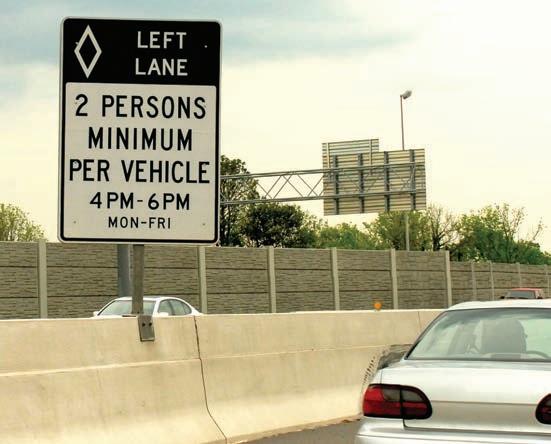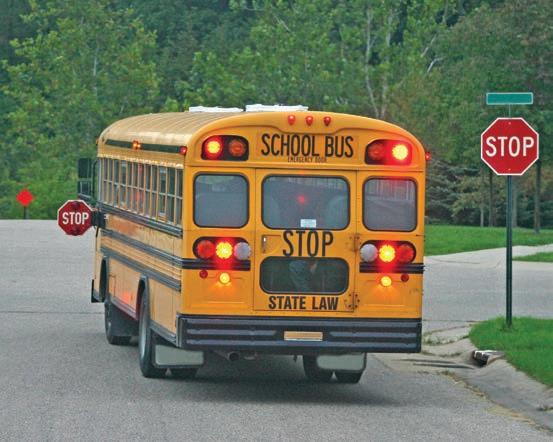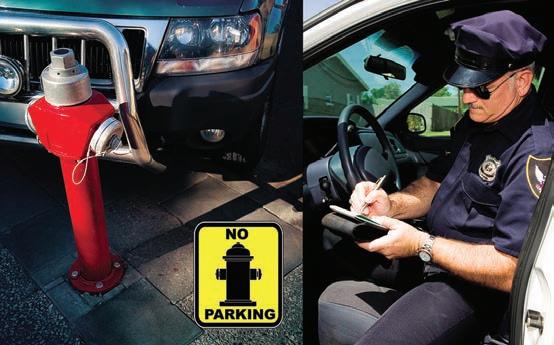
4 minute read
Driving
64) Driving Laws
Your local Department of Motor Vehicles (DMV) will provide you with driving laws for your state.
If a police officer sees you breaking a driving law, you will get a ticket and points added to your license. If you receive a certain number of points, you will lose your license.
Make sure you renew your car registration once a year or when necessary.
65) Parking Tickets
You will receive parking tickets for parking in illegal areas or for not paying the parking meter. Fines can increase if you do not pay them within a certain number of days. In some areas, your car will get towed if it is parked illegally. Never park in front of fire hydrants, driveways, taxi stands, red or yellow curbs, or bus stops. Do not park in handicapped spaces if you do not have a handicapped card. Look for signs where you park to make sure it is legal to park there during the hours you are there.
(66)
(65) Parking tickets
66) What to do if Stopped by the Police
If a police car flashes its lights behind you: 1. Use your turn signal and pull over to the right in a safe area. 2. Turn off the engine and do not leave your car. 3. Keep your hands on the wheel and stay relaxed. When the officer asks for your license, insurance and registration you can take your hands off the wheel. 4. Be polite and show respect.
67) Child Seats
Children have to ride in a child safety seat up to a certain age and weight as specified by state law. The police will stop you when they see a child
who is not using a seat belt or car seat.
Stopped by police
(67)
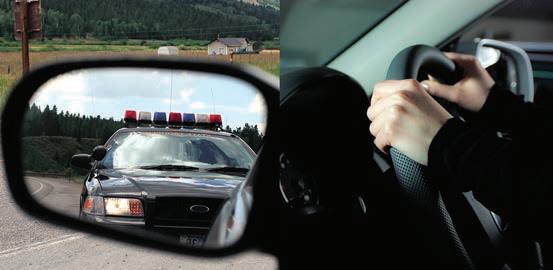
Child seats
68) Honking
In some countries people use their car horns often, but in the U.S. honking is only used when necessary, especially in smaller cities. You usually use your car horn to prevent an accident or alert other drivers who are not paying attention.
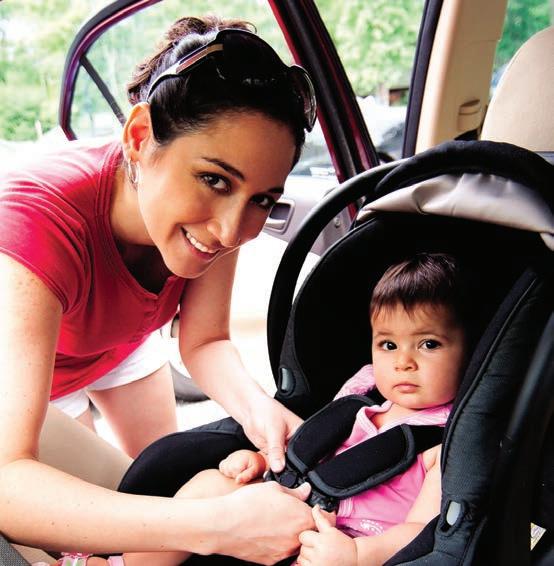
69) Car Insurance
A car insurance policy protects you from losing money if you are involved in a car accident. Policies provide different levels of coverage depending on how much risk you want to take. Call two or three companies to get different prices. The cost of insurance depends on your driving record, how old you are, the value of your car, and how many people will drive the car. Types of car insurance include: - Property damage – covers repairing the other person’s car. - Bodily injury – covers costs of injuries to other people. - Uninsured motorist – protects you if the person at fault has no coverage. - Collision – covers damages to your car if the accident is your fault. - Comprehensive – pays for non-accident related damage such as fire or theft. You may need to provide proof that you have insurance before you can register your car. If you are involved in an accident, write down the other person’s name, phone number, insurance information, and license plate number. AAA is an association that has low membership fees and helps when you have a car emergency.
70) Staying on the Right
When driving on the highway, stay on the right side of the road. Only use the left lane to pass other cars. If you hear sirens or see flashing lights from an emergency vehicle, slowly pull over to the right to let the vehicle pass. If you see flashing red lights on a school bus, do not pass the bus.
71) Buying & Registering a Car
You can buy used or new cars from an individual or from a dealer. Get a good mechanic to inspect the car before you buy. Be prepared to negotiate because negotiation is a normal part of buying a car. Before you meet with the seller investigate the value of the car. You should investigate different purchase options such as buying, leasing and getting a loan from a bank or the dealer. In some areas your car has to pass an emissions test before you can register the car.
72) Carpooling & HOV Lanes
Some highways have HOV lanes for cars with two or more people. You can receive a fine for driving alone in an HOV lane. In some areas, HOV lanes are for cars with three or more people. Some roads require you to pay a toll, and if you fail to pay you can receive a large fine. Make sure you enter the “Cash Only” lane if you do not have a device that automatically pays tolls.
(70) School Bus (72) HOV Lanes
